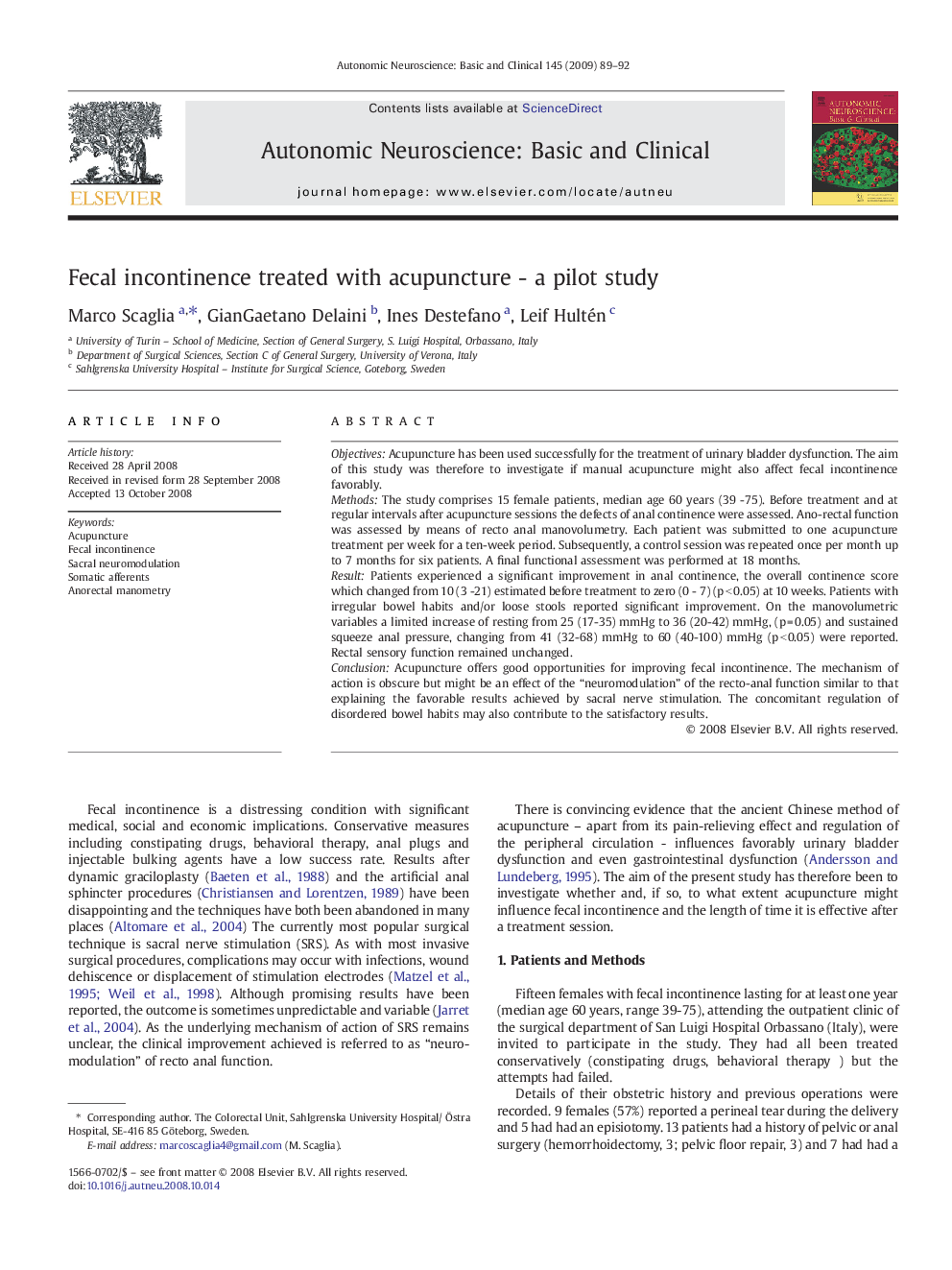| Article ID | Journal | Published Year | Pages | File Type |
|---|---|---|---|---|
| 3035417 | Autonomic Neuroscience | 2009 | 4 Pages |
ObjectivesAcupuncture has been used successfully for the treatment of urinary bladder dysfunction. The aim of this study was therefore to investigate if manual acupuncture might also affect fecal incontinence favorably.MethodsThe study comprises 15 female patients, median age 60 years (39 -75). Before treatment and at regular intervals after acupuncture sessions the defects of anal continence were assessed. Ano-rectal function was assessed by means of recto anal manovolumetry. Each patient was submitted to one acupuncture treatment per week for a ten-week period. Subsequently, a control session was repeated once per month up to 7 months for six patients. A final functional assessment was performed at 18 months.ResultPatients experienced a significant improvement in anal continence, the overall continence score which changed from 10 (3 -21) estimated before treatment to zero (0 - 7) (p < 0.05) at 10 weeks. Patients with irregular bowel habits and/or loose stools reported significant improvement. On the manovolumetric variables a limited increase of resting from 25 (17-35) mmHg to 36 (20-42) mmHg, (p = 0.05) and sustained squeeze anal pressure, changing from 41 (32-68) mmHg to 60 (40-100) mmHg (p < 0.05) were reported. Rectal sensory function remained unchanged.ConclusionAcupuncture offers good opportunities for improving fecal incontinence. The mechanism of action is obscure but might be an effect of the “neuromodulation” of the recto-anal function similar to that explaining the favorable results achieved by sacral nerve stimulation. The concomitant regulation of disordered bowel habits may also contribute to the satisfactory results.
